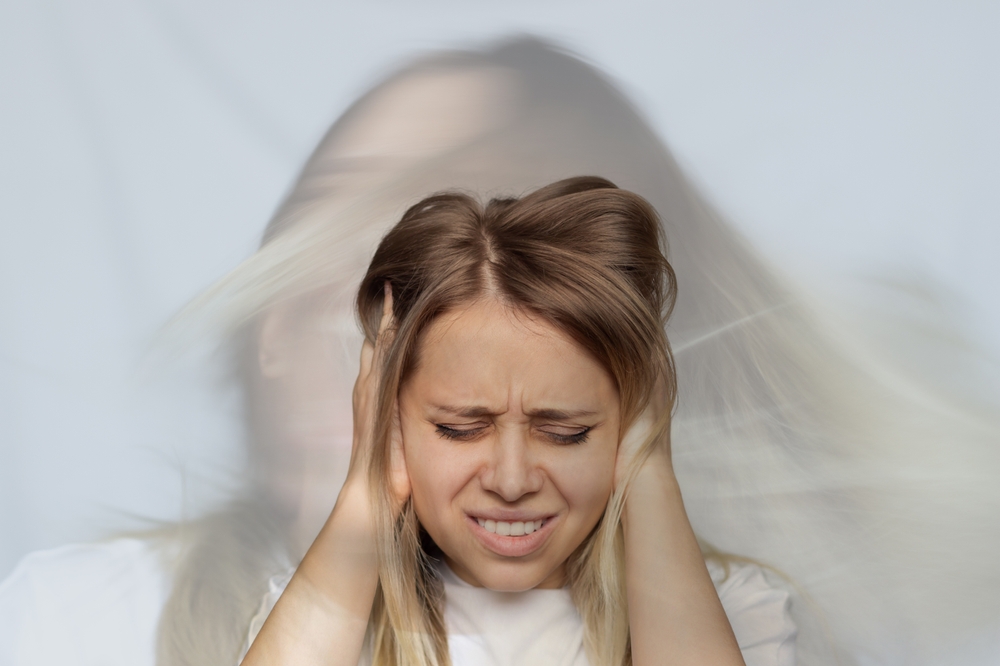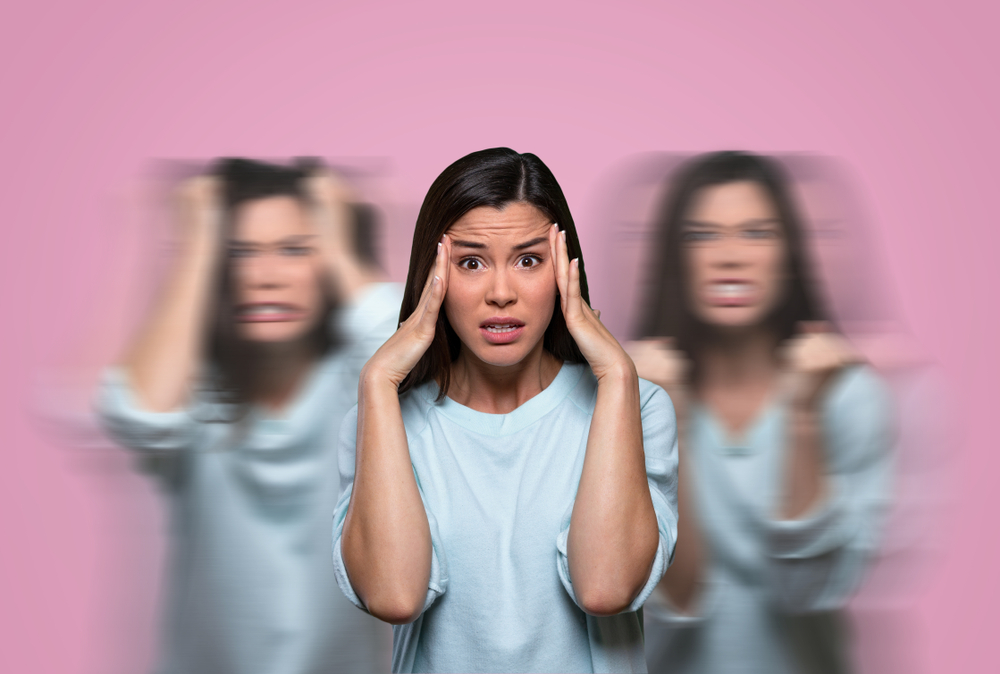Last Updated:
May 28th, 2025
Schizophrenia and Addiction | Support Options
What is schizophrenia?
Schizophrenia is a complex mental health condition that affects how a person thinks, feels and perceives the world. It can lead to difficulties in distinguishing between reality and imagination, affecting emotions, behaviour and social interactions.
Symptoms often include hallucinations (such as hearing voices), delusions (strong beliefs that aren’t based in reality), disorganised thinking and reduced motivation. These symptoms can vary in severity and may develop gradually or appear suddenly.

Are there different types of schizophrenia?
Schizophrenia is not a one-size-fits-all condition. While the term ‘schizophrenia’ is used as a general diagnosis, different types of schizophrenia were previously recognised based on symptom patterns. Though modern classifications no longer separate schizophrenia into distinct subtypes, understanding these categories can help describe the different ways the condition can present.
Paranoid schizophrenia
This type was characterised by strong delusions and hallucinations, often involving themes of persecution or grandiosity. People with this type often had fewer issues with speech and thought disorganisation compared to other types.
Symptoms include:
- Delusions (false beliefs, often about being watched, followed or conspired against)
- Auditory hallucinations (hearing voices that others do not)
- Heightened suspicion or paranoia
- Difficulty trusting others
- Anxiety, anger or agitation
Disorganised schizophrenia
Previously known as hebephrenic schizophrenia, this type involved disorganised thinking, speech and behaviour. People with this type often struggle with communication and emotional expression.
Symptoms include:
- Disorganised speech (sentences may not make sense or jump between unrelated topics)
- Disorganised behaviour (difficulty completing tasks or following routines)
- Flat or inappropriate emotional responses (such as laughing at sad news)
- Difficulty maintaining personal hygiene or self-care
Catatonic schizophrenia
This type was defined by unusual physical movements, which could range from extreme stillness to repetitive or agitated movements.
Symptoms include:
- Periods of immobility or staying in rigid postures for long durations
- Unusual or repetitive movements (such as rocking back and forth)
- Resistance to movement or instructions
- Echolalia (repeating words or phrases spoken by others)
- Mutism (being unable or unwilling to speak)
Residual schizophrenia
This was used to describe cases where a person had previously experienced schizophrenia symptoms but was not currently experiencing prominent delusions or hallucinations.
Symptoms include:
- Lack of motivation and energy
- Difficulty expressing emotions
- Social withdrawal or isolation
- Occasional mild hallucinations or delusions
Undifferentiated schizophrenia
When a person showed symptoms of schizophrenia but did not fit neatly into one of the above categories, they were diagnosed with undifferentiated schizophrenia.
Symptoms include:
- A mix of paranoid, disorganised or catatonic symptoms
- Inconsistent symptom patterns
- General confusion and difficulty functioning
What is the cause of schizophrenia?
The exact cause of schizophrenia remains unknown, but research suggests it develops from a combination of factors:
- Genetics appears to be a primary influence, as those with a family history of schizophrenia have a higher likelihood of developing the condition, though it’s not guaranteed.
- Brain chemistry and structure also play a role, with hypotheses suggesting dysfunctional dopamine and glutamate transmitters are a potential cause.
- Environmental triggers, such as extreme childhood trauma, may contribute, though not everyone exposed to this develops schizophrenia.
- Drug use, particularly cannabis, has been linked to an increased risk, especially in those with a genetic predisposition.
The link between schizophrenia and addiction
Schizophrenia and addiction often go hand in hand, with nearly half of people with schizophrenia struggling with serious drug or alcohol issues at some point in their lives.
That’s a huge contrast to the general population, where the rate is just 16%.
Tobacco, alcohol, cannabis and cocaine are the most commonly used substances, with people with schizophrenia being three times more likely to develop addictions compared to those without the condition. Tobacco alone affects up to 90% of people with schizophrenia, while alcohol and cannabis use disorders are also incredibly common.
For many, substance use starts as a way to cope. The distress of schizophrenic symptoms (like hallucinations and paranoia) can push people toward substances that offer even the slightest relief. But what feels like an escape often turns into another layer of struggle.
Addiction makes symptoms worse, leads to more frequent relapses and increases the risk of hospitalisation, violence and even suicide. It can also make it harder to stick to treatment, creating a vicious cycle where both conditions feed into each other.

Is schizophrenia and addiction treatable?
Breaking free from the cycle of schizophrenia and addiction isn’t easy, but it’s absolutely possible. The key is treating both conditions together rather than addressing one while ignoring the other. This is known as dual diagnosis treatment.
Dual diagnosis of schizophrenia and addiction
Dual diagnosis treatment focuses on stabilising mental health while helping individuals develop healthier coping strategies without relying on substances. Many programmes recognise that addiction and mental health issues, like schizophrenia, are deeply connected—when one goes untreated, the other often worsens.
Misdiagnosis is an unfortunate possibility. Some people enter addiction treatment unaware of an underlying mental health condition, while others get care for schizophrenia without proper support for substance use. This can create a cycle where the untreated issue keeps fueling the other, making recovery more difficult.
This is why dual diagnosis treatment is so important. By addressing both conditions through therapy, medication and long-term support, individuals can regain stability and work toward a life where neither condition controls them. Recovery takes time, but with the right help, it is absolutely possible.
How are schizophrenia and addiction treated at rehab?
When addiction and schizophrenia co-exist, treatment must address both with care. While addiction treatment doesn’t replace mental health care, certain therapies can support symptom management alongside recovery.
Where can I find support for the next steps?
If you or someone you love is struggling with addiction and schizophrenia, getting the right support can make all the difference. Addiction Helper offers confidential advice, treatment options and guidance tailored to your needs. Speak to a compassionate expert today and take the first step toward managing both conditions and building a healthier future. You’re not alone.
Our compassionate team are ready and available to take your call, and guide you towards lasting the lasting addiction recovery you deserve.
Frequently Asked Questions
(Click here to see works cited)
- Salleh MR. The genetics of schizophrenia. Malays J Med Sci. 2004 Jul;11(2):3-11. PMID: 22973121; PMCID: PMC3433970.
- McCutcheon RA, Krystal JH, Howes OD. Dopamine and glutamate in schizophrenia: biology, symptoms and treatment. World Psychiatry. 2020 Feb;19(1):15-33. doi: 10.1002/wps.20693. PMID: 31922684; PMCID: PMC6953551.
- Popovic D, Schmitt A, Kaurani L, Senner F, Papiol S, Malchow B, Fischer A, Schulze TG, Koutsouleris N, Falkai P. Childhood Trauma in Schizophrenia: Current Findings and Research Perspectives. Front Neurosci. 2019 Mar 21;13:274. doi: 10.3389/fnins.2019.00274. PMID: 30983960; PMCID: PMC6448042.
- Hall W, Degenhardt L. Cannabis use and the risk of developing a psychotic disorder. World Psychiatry. 2008;7(2):68-71. doi: 10.1002/j.2051-5545.2008.tb00158.x. PMID: 18560513; PMCID: PMC2424288.
- Khokhar JY, Dwiel LL, Henricks AM, Doucette WT, Green AI. The link between schizophrenia and substance use disorder: A unifying hypothesis. Schizophr Res. 2018 Apr;194:78-85. doi: 10.1016/j.schres.2017.04.016. Epub 2017 Apr 14. PMID: 28416205; PMCID: PMC6094954.

